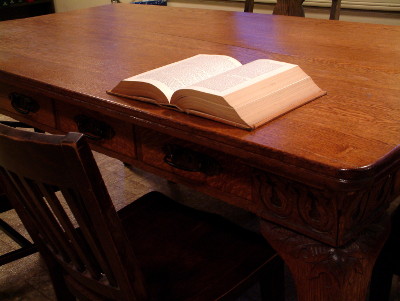 Just because a will gets notarized doesn’t mean that it’s ready for Minnesota probate.
Just because a will gets notarized doesn’t mean that it’s ready for Minnesota probate.
You should know what kinds of concerns can be run into when validating a will so that it can be used during probate. More or less, there are two main factors which probate may check in the will, that it’s properly notarized and that the will itself meets all of the basic requirements for being probated.
It’s hypothetically possible that any written document can be brought to the courthouse and mentioned in the case. The main concern is, however, if said piece of paper will have any legal power to sway the case. The truth of the matter is that probate law boils down to getting the probate court’s approval, and making sure that all of the estate planning documents the deceased left can be used to redistribute their assets.
More Than Notarized
Even if the will is notarized, you need to be aware that there could be other parts which the state requires. The will itself needs to qualify as a valid will. There are three basic requirements, which are listed later on, that almost every will must meet.
Holographic wills, wills that are handwritten, are often okay without having witnesses or being notarized, but having either of those extra measures can only assist in validating the will. Witnesses and notarizing the will are what make it more valid, but they might not be what makes an otherwise invalid will valid.
Should you be the executor of this probate case, notarization and witnesses are two of the major things that you want to check. You may want to find the witnesses and make sure that the will was actually notarized. As far as what the will needs to contain, you may want to speak to your probate lawyer and also consult the probate court.
They’ll be the ones that should be able to decide whether or not the will is worth anything. For Minnesota cases, the general rule is that witnesses are more important than notarization, as a will may be invalid even after it’s notarized, but there weren’t any witnesses to supervise the event. It may be their word versus the written document.
Not In View
One way to tell whether or not a will was actually notarized legally is to see if the notary publicly actually saw the signing of the will. An ideal situation would have the notary and the witnesses all telling the same story. Any notary public needs to see the signing of the document in order to actually notarize it.
There may have been other witnesses, but the notary public will have to actually seen the signing in order to legitimately notarize the document. You may even want to ask them if they remember notarizing the specific document should they have a qualitative memory.
Aside from notarizing the document, three signatures is normally the maximum for how many signatures that may be required. However, you’re probably sleuthing for only to two different people, aside from the notary. There should be one signature for will’s author, who may be otherwise referred to as as the testator, along two other signatures for witnesses. That said, if there were no witnesses, not even having the will notarized may make it legitimate.
Why Notarized
Though notarizing your will may not make a given will legal, it will only further help the case to go smoothly. It’s possible that a will that isn’t notarized may have a lower likelihood of being approved for probate. You want to increase those odds, assuming that you want your will to be used during the case. The main concern, again, resides in having witnesses to approve of the notary. Their testimony and integrity might be used in court so that the will can be considered intact. You’re counting on them not betraying you, as to complicate the matter further.
Then again, your witnesses might not even need to be checked by the court. Minnesota courts, as an example, might not even need the witnesses to appear once the will has been officially notarized with two witnesses. Such wills are classified as being self-proving. For these kinds of wills, the testator has already gone through the effort of signing it with two witnesses along with a notary public, enabling their will to be prepared for probate. When they’re looking to bring a will to the courthouse, this is the kind of will you’ll want them to bring.
Without Witnesses
Not having witnesses sign on the will isn’t always the biggest issue. Some states may use the laws of other states to legitimate the will. For example, they may recognize the will as being legal as long as it meets the standards for holographic wills for the state in which the deceased was living in at the time of its writing.
So, time, state law, and state of residence can all be factors which make or break the will. Say that your mother passes, but she only leaves behind a will that wasn’t notarized and has no witnesses’ signatures. In such a case, as long as she was living in a state that allowed for those kinds of wills, the will may hold up.
This, of course, is assuming that the state in which they lived in after the will’s creation accepts wills from other states in that format. Things become more complicated when you create your estate planning documents and then, move to another state without adjusting to the new laws. At the very least, any given will should include the deceased’s name, the date of the will’s creation, and discussion of how the assets are going to be redistributed. Those are the absolutely most basic components any given will should contain. You want to know who the will was written for, what date the will was made official, and how it impacts the probate case.
Minnesota Estate Planning Lawyers
As a hypothetical situation, say that you have a will and you’re not sure if its notarized or that your just getting acquainted with reading estate planning documents.
This might be an example of how you figure out how to handle this case. Probate, wills, and all the things in between don’t need to be mysteries. You may also want to check and see if the will itself has any chance of holding up in court. Though the will itself may not change who gets what, it may change who has the opportunity to handle the case.
So, as an endeavor to move forward with the probate case, you contact a probate attorney at Flanders Law Firm LLC and call them at 612-424-0398.
Sources
https://legalbeagle.com/12716023-is-it-legal-to-handwrite-a-will-in-minnesota-if-you-get-it-notarized.html




4 thoughts on “Validating a Will for Probate”